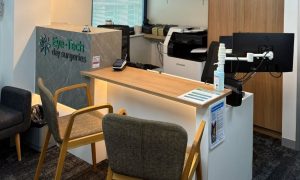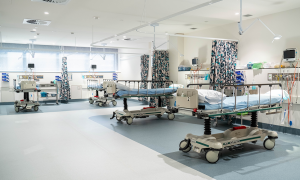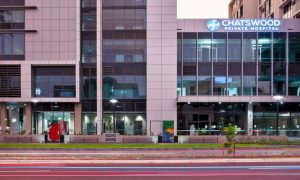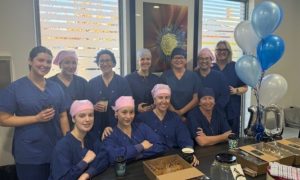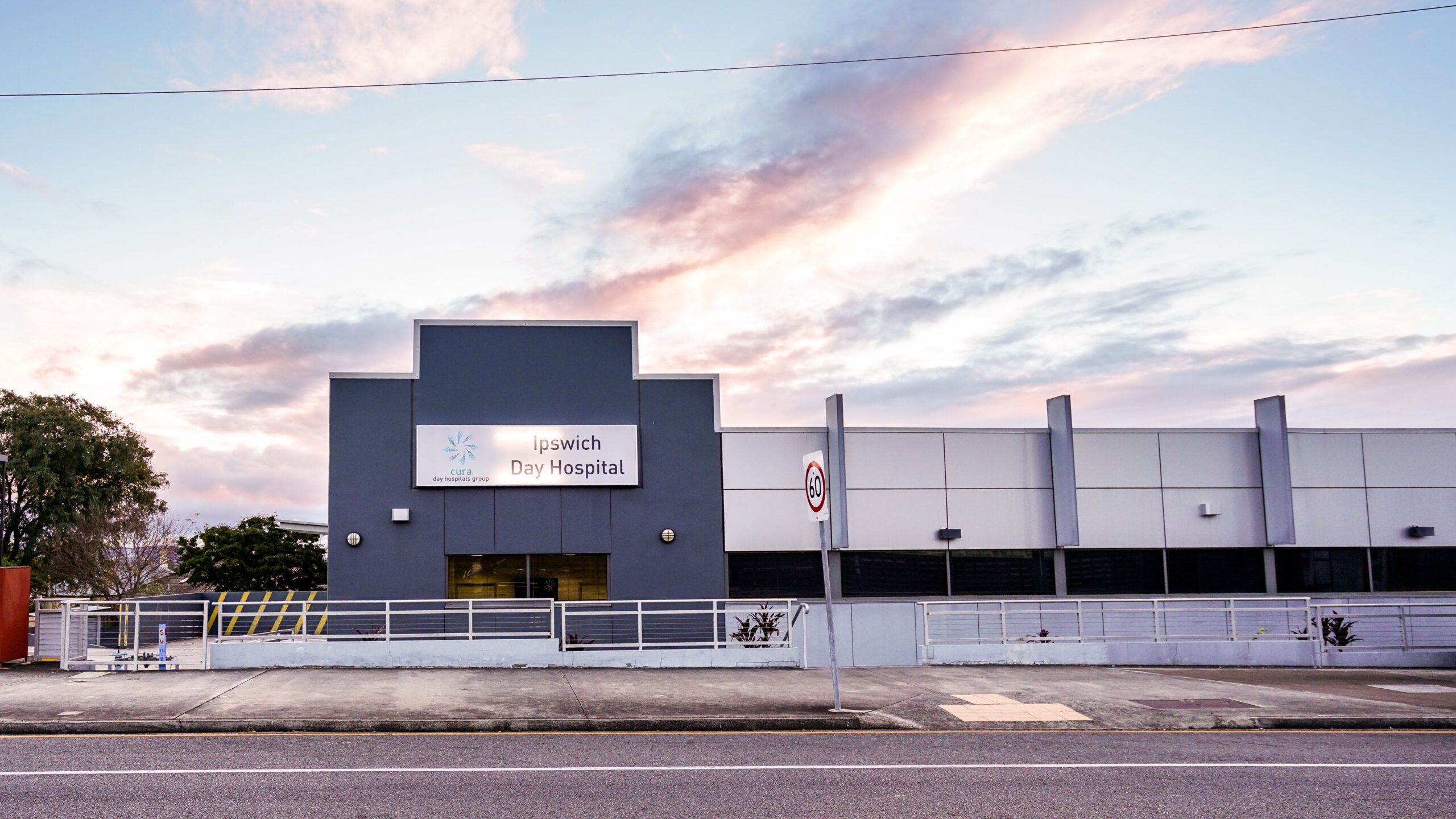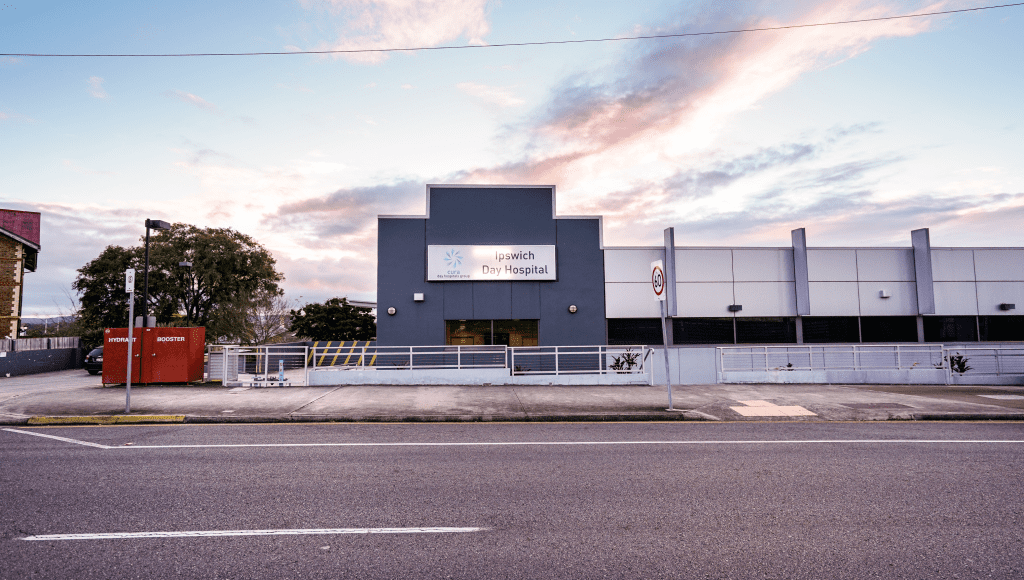Welcome to Ipswich Day Hospital
Ipswich Day Hospital is a purpose built, technologically advanced day surgery facility, conveniently located in the Medicross Centre at 10 Churchill Street Ipswich. The Ipswich Day Hospital philosophy is to provide quality surgical care in a relaxed, professional and caring environment. The facility staff are highly trained professionals who are committed to providing the very best holistic care for their patients.
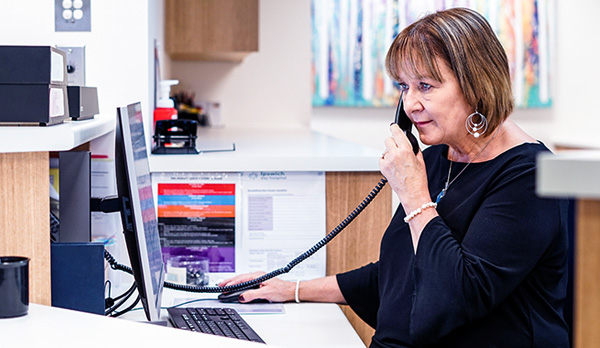
- Patient Information
- Find a Doctor
- Patient Feedback
- Australian Charter of Healthcare Rights
- Patient Safety and Quality
- Governance
- Online admissions
- Our Procedures
A Colonoscopy is an examination of the colon (large intestine) using a long, thin, flexible tube with a camera called a colonoscope.
A gastroscopy is an examination of the upper digestive tract (the oesophagus, the stomach and duodenum) using a long, thin, flexible tube with a camera called a gastroscope.
Polyps are growths on the inside of the colon or gastrointestinal tract and are very common. A polypectomy can be performed during a colonoscopy or gastroscopy procedure.
Open hernia repair is the procedure performed to repair hernia by pushing the hernia back in place through an abdominal incision.
Surgical removal of lesions is a simple procedure undertaken to remove growths such as lesions, tumours or moles for either medical or cosmetic reasons.
Wedge resection toenail is the surgical treatment for an ingrown toenail.
A blepharoplasty is a procedure which removes excess or sagging skin from upper and/or lower eyelids. The surgery is usually performed for cosmetic reasons however; it can improve sight in patients whose eyelids are obscuring their vision.
Excision of lesions is a procedure to remove growths such as lesions, moles and tumours from the skin, sometimes accompanied by frozen sections and followed by sutures or a graft. The most common reason for undertaking this procedure is for the removal of skin cancers such as Basal Cell Carcinoma which is the most common skin cancer on the face.
Cataract surgery is the surgical replacement of a cloudy lens with an artificial intraocular lens (IOL) implant to restore vision. The cloudy lens is broken up and removed with an ultrasound probe through a very small incision in the eye, and the artificial lens is inserted.
An ICL procedure involves the insertion of an implantable contact lens in the front chamber of the eye, leaving the natural lens intact. The procedure, undertaken to correct short- or long-sightedness, is often used as an alternative to corrective laser procedures.
A penetrating keratoplasty, or corneal transplant, replaces diseased or scarred corneal tissue with healthy tissue from an organ donor. Corneal transplants can treat a number of conditions such as keratoconus, Fuchs’ dystrophy, corneal infection, corneal dystrophy and corneal injury or trauma.
A pterygium is a growth of blood vessels and fibrous tissues covering the surface of the eye due to over-exposure to sunlight over an extended period of time. A pterygium is treated with a surgical excision and an auto-conjunctival graft.
Squint surgery involves tightening the extraocular eye muscles to change the eye position in order to correct a turned eye.
Vitrectomy is a surgery which removes the vitreous gel from the eye to assist in the repair of retinal detachments, macular holes and retinal membrane surgeries.
Dental implants are used to replace damaged or missing teeth. A dental implant procedure is where a screw or metal fixture is implanted into the jaw as the base for a new false tooth.
Dental restoration is a broad term used to encompass any dental procedure, artificial substance or structure with protects the mouth’s ability to eat and chew. The most common form of dental restoration are dental fillings.
Oral pathology is the study of oral diseases. Diagnostic procedures include conventional biopsy, brush biopsy, and exfoliative cytology.
When wisdom teeth have the potential to cause problems or become impacted, they may be removed surgically. In the procedure, the surgeon makes a small incision and extracts the tooth with forceps.
A tooth extraction is the removal of a tooth from the dental alveolus (socket) in the alveolar bone.
Commonly referred to as a ‘tummy-tuck’, an abdominoplasty is a cosmetic or reconstructive surgery to remove excess skin and fat from the abdomen, and to tighten the stomach muscles.
Breast augmentation is the surgical increase of the size of woman’s breasts, usually through the use of breast implants.
A breast lift, or mastopexy, raises and firms the breasts by removing and tightening the surrounding skin.
Breast reduction surgery also known as reduction mammoplasty is a procedure to reduce the size of large breasts through the removal of excess fat, tissue and skin from the breasts.
Labiaplasty surgery is a procedure which reduces and reshapes excess labia minora tissue of the vagina.
Otoplasty, also known as ear correction surgery or ‘ear pinning’, is performed to move prominent or protruding ears closer to the head. It is done using permanent sutures to hold the ears in place.
The circumcision procedure (for infant males) involves the use of a Plastibell (a small plastic ring) which is slipped over the glans, and the foreskin is laid over it.
A cystoscopy is a procedure in which a thin flexible tube with a camera and light on the end is inserted through the urethra and into the bladder. The procedure is most commonly undertaken to investigate the bladder for any abnormalities.
A stent removal is the removal of a ureteral stent by a surgeon using a cystoscope. A cystoscope is a thin, flexible tube with a camera and a light that is inserted through the urethra.
A TRUS biopsy is a procedure where a tissue sample of the prostate gland is taken via a rectal ultrasound probe.
A vasectomy is a surgical procedure that sterilises a man by cutting the vas deferens, which are tubes that carry sperm from the testes to the penis.
Contact Details
Opening Hours: 7:00am to 5:00pm, Monday to Friday. Our friendly personnel are always ready to assist with your enquiries.
Tel: (07) 3282 8800
Contact Person: Dee May, CEO/ Director of Nursing [email protected]
Address: 10 Churchill Street Ipswich Qld 4305
- Follow Ipswich Day Hospital on social
